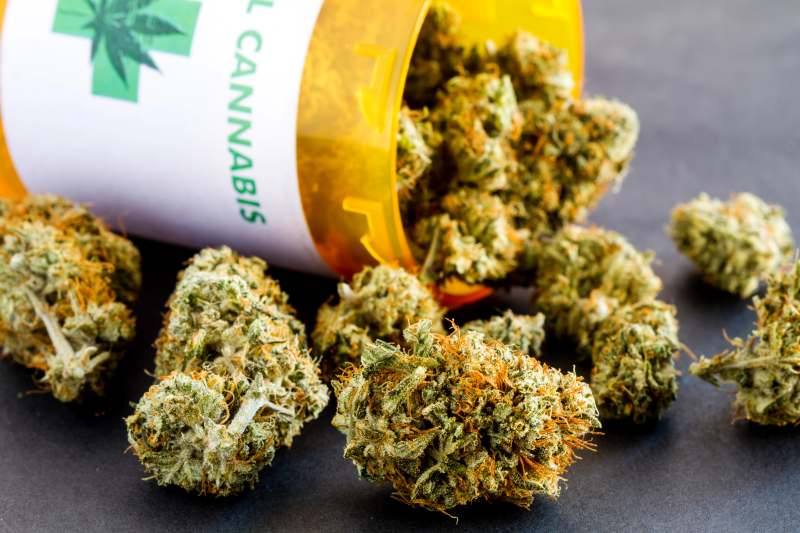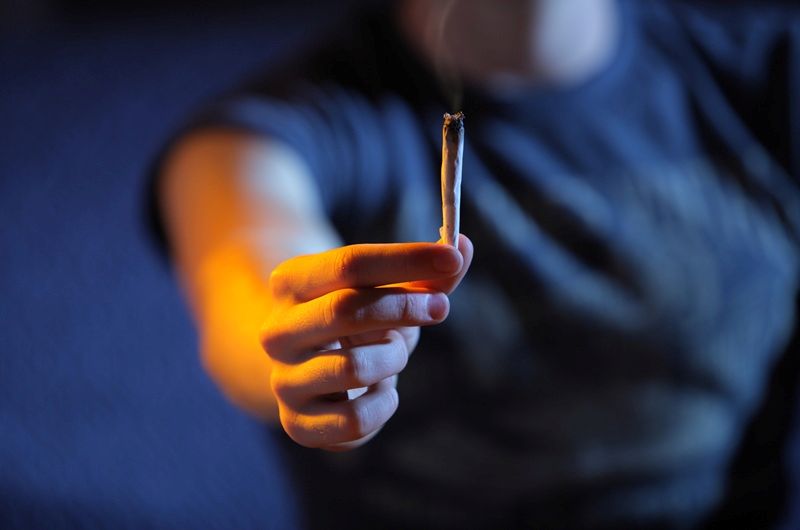Facing drug-related allegations in Virginia can be challenging, especially when you don’t know what to expect. The state divides controlled substances into groups that impact charge severity and sentencing. Knowing how these laws apply to your situation is key to building a strong defense.
Drug schedules dictate whether an offense qualifies as a misdemeanor or felony and determine the following penalties. In this article, learn about Virginia’s classification system, how it affects criminal charges, and what factors can increase penalties. See how different defense strategies may help protect your rights and future.
How Do Virginia’s Drug Schedules Work?
Virginia categorizes controlled substances into five schedules based on their medical use, potential for abuse, and risk of addiction. These classifications follow federal guidelines, and Virginia law enforces them. The placement of a drug within these schedules can define the severity of charges a person may face.
Schedule I
Schedule I drugs pose the highest risk due to their addictive nature and lack of accepted medical use. Common examples include heroin, LSD, MDMA (Ecstasy), and PCP. Virginia law treats possession of these substances as a serious offense, often charging individuals with Class 5 Felony.
Schedule II
Schedule II substances also carry a high risk of addiction but have recognized medical applications. Possessing these drugs without a prescription or in excessive amounts often results in felony charges. Common examples include cocaine, methamphetamine, oxycodone, fentanyl, and Adderall.
Schedule III
Schedule III drugs present a lower risk of abuse than Schedules I and II but can still cause dependence. Many substances in this category, such as anabolic steroids, ketamine, and codeine (in moderate amounts), serve medical purposes but require a prescription. Unauthorized possession or distribution leads to charges.
Schedule IV
Schedule IV drugs have a lower potential for abuse and see widespread use in medical treatments. Many anti-anxiety medications and sleep aids, such as Xanax and Ambien, fall into this category. Despite their legitimate uses, unauthorized possession still carries criminal consequences.
Schedule V
Schedule V drugs contain small amounts of narcotics and appear in many over-the-counter medications. Cough syrups with codeine, Lyrica, and specific diarrhea or cold medications fall into this group. These substances have a low risk of abuse, so regulations are less strict compared to higher schedules.
Schedule VI
Schedule VI includes substances that are not classified as drugs of abuse but still require regulation. Many household and industrial chemicals, such as inhalants, nitrous oxide, and certain glues or solvents, fall into this category. Although these substances have legitimate uses, improper possession or misuse can lead to legal consequences.
The way Virginia classifies drugs isn’t just a technical detail it determines the charges you might face. Higher-schedule substances often bring stricter penalties, while lower schedules may result in reduced charges. Knowing how these impact your case can help you prepare for what’s ahead.
Does The Type Of Substance Change My Charges?
Substance classification directly impacts the type and severity of criminal charges in Virginia. Law enforcement, prosecutors, and judges use these categories to decide whether an offense qualifies as a misdemeanor or a felony. The classification also helps determine the potential penalties after a conviction.
Virginia assigns stricter penalties to substances with a higher potential for abuse and no accepted medical use. Lower-schedule substances still carry legal consequences, but the charges are usually less severe. The penalties for drug offenses increase as the schedule number decreases:
- Schedule I and II substances carry the most severe penalties, with possession often leading to Class 5 felony charges. A conviction can result in one to ten years in prison or jail time of not more than 12 months, a fine of not more than $2,500, and long-term consequences for employment and housing.
- Schedule III-V: Possession usually results in misdemeanor charges, but distribution or large quantities can elevate the offense to a felony. Courts may impose jail time, probation, or fines depending on the circumstances.
- Schedule VI: While possession rarely leads to criminal charges, misuse or distribution can still bring legal consequences. Cases involving minors or repeat offenses can result in harsher penalties.
Possession carries the least severe punishment, while distribution and manufacturing result in much longer sentences. Holding a large amount of a higher-schedule substance can lead to enhanced charges, including drug trafficking. Knowing how these schedules influence your case helps when preparing a defense.
While substance classification plays a significant role in determining charges, other factors can also impact the severity of penalties. The circumstances surrounding the offense, such as intent, location, and prior convictions, often influence the outcome. Understanding these additional factors can help assess a drug-related case’s risks and potential defenses.
What Factors Can Make Your Charges More Serious?
Drug classification influences charges, but additional factors can increase penalties. Courts consider prior offenses, drug quantity, and the presence of weapons when determining sentences. Here are some elements that can turn a minor charge into a more serious legal issue:
- Prior Convictions: Repeat offenders often face harsher penalties, including longer jail sentences and higher fines. Courts impose stricter punishments to deter individuals from committing further drug-related offenses.
- Possession Near Schools or Minors: If authorities find drugs near schools, daycare centers, or areas where children are present, penalties increase. The law treats these cases more severely to discourage drug activity in vulnerable communities.
- Large Quantities and Trafficking Charges: Holding a significant amount of a substance can lead to trafficking charges, which carry mandatory minimum sentences. Prosecutors argue that large quantities indicate intent to distribute, even if no sale occurred.
- Use of Firearms in Drug Crimes: The presence of a firearm during an arrest can add additional felony charges. Even if the weapon played no active role, courts treat it as an aggravating factor and impose a harsher sentence.
Many legal challenges accompany a drug charge, but understanding these factors can help prepare a defense. Many people have questions about how Virginia handles these cases, and getting clear answers is necessary when planning the next steps.
What Are The Most Common Questions About These Cases?
Many people facing drug-related charges in Virginia want to know how the law applies to their situation. Understanding your rights and legal options can help you make informed decisions. Below are common questions and answers to clarify what to expect.
Can The Police Charge Me If The Drugs Aren’t Mine?
Yes. Virginia’s constructive possession laws allow prosecutors to charge you if they find drugs in a place you control, such as your home or car. However, they must prove you knew about the substances and had access to them. Challenging their evidence can help build a strong defense.
What Happens If I Have A Prescription For A Scheduled Substance?
A valid prescription allows you to legally carry a controlled substance, but you must follow the prescribed dosage. Carrying someone else’s medication or exceeding the legal limit can still lead to charges. Law enforcement may ask for proof that the medication belongs to you.
Will A Drug Conviction Stay On My Record Forever?
Most drug convictions remain on your record permanently, which can limit employment and housing opportunities. Some first-time offenses qualify for expungement or record sealing only under specific conditions. Speaking with a lawyer can help you determine if you are eligible.
Can First-Time Offenders Avoid Jail Time?
In some cases, yes. Virginia offers first-time offender programs that may allow individuals to complete probation, community service, or drug treatment instead of serving jail time. Successfully meeting the program’s requirements can sometimes lead to reduced charges or case dismissal.
Understanding the legal process is significant, but handling a drug charge alone puts your future at risk. Building the right defense strategy takes legal knowledge, negotiation skills, and courtroom experience. If you face drug-related charges, working with a skilled attorney can protect your rights and improve your chances of a favorable result.
Why Choose Fairfax County Criminal Attorneys For Drug Charges?
Facing drug charges in Virginia can impact your freedom, reputation, and future. Fairfax County Criminal Attorneys knows how severe these cases are and how much is at stake. Whether facing possession or distribution charges, you need a defense challenging the prosecution and protecting your rights.
Our team carefully reviews your case to build a defense suited to your situation. We examine the evidence, challenge law enforcement procedures, and identify weaknesses in the prosecution’s claims. If the police violated your rights or lacked sufficient proof, we push for dismissal or reduced charges.
No two cases are identical, and we don’t treat them that way. You’ll get the personal attention and commitment you deserve from a team that genuinely cares about your case. We stand by your side every step of the way. If you’re facing drug charges, don’t wait to take action let’s start building your defense today.
Virginia’s substance classification system directly impacts the severity of criminal charges. Substances on higher schedules often result in felony charges, while substances on lower schedules may carry misdemeanor penalties. Additional factors, such as intent, prior convictions, and location, can further increase sentencing.
A well-planned legal strategy can reduce penalties, challenge weak evidence, or lead to case dismissal. Every case requires a thorough review to determine the best course of action. Fairfax County Criminal Attorneys provides skilled legal representation to protect your rights and future.






